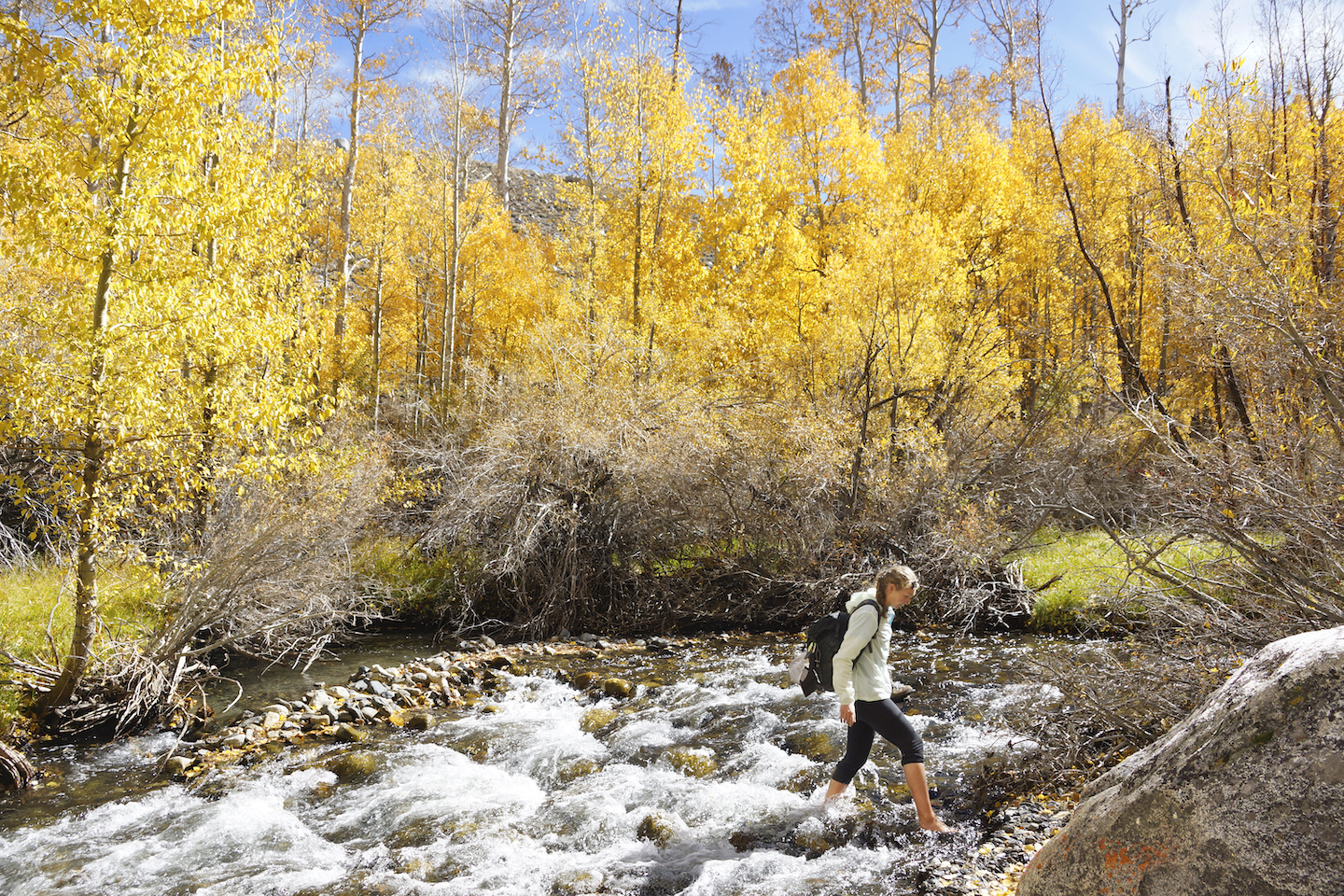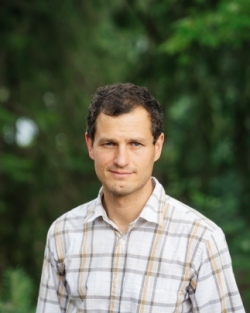Fall 2026
The application period for this program has passed.

The Department of Earth Sciences field study program (EARS 45, 46, and 47), traditionally called the "Stretch," is a world-class opportunity for Dartmouth undergraduates to gain experience in traditional and emerging field techniques in the Earth Sciences, to learn about the spectacular bedrock and surficial geology of the western United States and Canada, and to travel, work, and live closely with fellow students and Dartmouth faculty and graduate students.
The format typically includes seven serial segments which, in recent years, have consisted of a glaciology project in the Canadian Rockies, tours of many of the national parks of the western United States, three- to four-day focused field-based exercises in Wyoming, Montana, California, and Arizona, geophysical studies of Death Valley, California, and a culminating hike into the Grand Canyon, Arizona. Along the way, students are exposed to a wide range of ongoing research projects conducted by Earth Sciences faculty, graduate students, and senior thesis students, in addition to a number of alumni and research scientists.
Student enrollment is between 20 to 24 students.
For more information about applying for this program, see our webpage on How to Apply & our FAQs under section 2 (How to Apply: Application)
 Edward Meyer Research Scientist Earth Sciences Off Campus Program Director
Edward Meyer Research Scientist Earth Sciences Off Campus Program Director EARS | 45:
Field Methods: Techniques of Structural and Stratigraphic Analysis
EARS | 46:
Field Methods: Environmental Monitoring
EARS | 47:
Field Methods: Resource and Earth Hazards Assessment
EARS | 40:
Materials of the Earth
(offered summer terms only)
and one of the following:
EARS | 1:
How the Earth Works
(preferable because it offers practical skills of rock identification and map-reading)
EARS | 2:
Evolution of Earth and Life
EARS | 3:
Elementary Oceanography
EARS | 5:
Natural Disasters and Catastrophes
EARS | 8:
Carbon Sequestration: Opportunities and Challenges
In addition: The following factors, among others, may be considered in prioritizing applications for the Earth Sciences off campus program (The Stretch):
• Declared major / Declared modified major status
• Academic standing in EARS courses
• Application Essay
• In-person, phone or video conference interviews
Students usually enroll in the program during the fall term of the junior year.
In case of large enrollments, preference will be given to earth sciences majors, minors, and modified majors.
The Stretch experience provides an opportunity to live and work close with faculty and graduate students. Typically, between eight to ten faculty and six to seven graduate student TAs participate each year. Student enrollment is between 20 to 24 students.
Lodging consists of research stations, hotels, motels, and guest ranches. Some segments also involve staying at established campgrounds, tents are provided when needed. Students fly into and out of the program. All transportation during the program is facilitated through 12-passenger vans.
Food is provided by the Department of Earth Sciences for the duration of the Stretch Program. Some meals are cooked by the group, while others are either purchased independently by students through a per-diem stipend or provided by lodging arrangements. Most dietary restrictions can be accomodated.
The Department of Earth Sciences is committed to creating a diverse and inclusive learning environment and welcomes all students. Students do not need to have any previous experience in the outdoors. Students should note that aspects of the Stretch can be physically demanding. Many days on the program involve traveling over rough ground for distances greater than ~3-4 miles. Please contact the Faculty Director Ed Meyer or Student Accessibility Services with questions regarding accessibility.
For more information, please see the department website.
We encourage students to engage with their SAS advisors and program faculty/staff during the exploratory, pre-application phase to discuss how disability-related accommodations and access needs can be supported in an off-campus environment. If you currently have approved accommodations at Hanover, SAS will review them to determine which can be provided at your off-campus location and what alternatives may be needed. On-campus and off-campus accommodations may differ depending on each program location's resources and accessibility features. We recommend beginning this discussion with SAS as soon as you are accepted and no later than at least one whole quarter before your program start date.
For next steps, review the Off-Campus Program Accommodations page on the SAS website.
The fees charged by the College for a Dartmouth-sponsored off-campus term of study include regular tuition charges for a term at Dartmouth, service fees, as well as the specific costs established for each off-campus study locale. In many programs, the room and board costs tend to be higher than for a term in Hanover. You can view a budget sheet for each program by clicking on the appropriate term under "Financing Your Program". The cost of transportation to and from the site is the responsibility of the student.
In order that all qualified Dartmouth undergraduate students may have the opportunity to take part in off-campus programs, the College endeavors to adjust its normal financial aid awards for students already receiving aid. Tuition and expected family contribution for Dartmouth's off-campus programs are the same as for an on-campus term.
All costs, including airfare and spending money, are considered when determining the cost of an off-campus program. Any costs more than a typical term in Hanover are met with additional Dartmouth Scholarship Funds. If you have a work expectation for the term, this will be replaced by scholarship funding for programs that span the entire term.
Students are responsible for purchasing their own plane tickets and, in many cases, meals. Often, families find that they owe less for billable items for study away terms but will instead use more of their expected family contribution towards indirect costs such as the flight and meals. For help sorting out who pays what and how, contacting the Financial Aid office is often advisable.
Financing your program | Financial Aid | Scholarships | Budgeting & Costs
 Edward Meyer Research Scientist Earth Sciences Off Campus Program Director
Edward Meyer Research Scientist Earth Sciences Off Campus Program Director  Madeline M. Duhnoski Director's Assistant
Madeline M. Duhnoski Director's Assistant